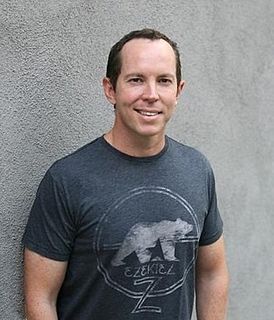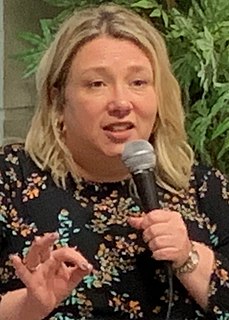A Quote by Sheila Heen
We each have two human needs: To learn and grow & to be respected, accepted and loved the way you are. Even though feedback facilitates learning and growth, it conflicts with our need to feel respected. This is a key reason we resist feedback.
Related Quotes
To learn anything other than the stuff you find in books, you need to be able to experiment, to make mistakes, to accept feedback, and to try again. It doesn't matter whether you are learning to ride a bike or starting a new career, the cycle of experiment, feedback, and new experiment is always there.
I'm the CEO of a small growing company, and at each stage of our growth, it's become apparent to me that I need to adapt my leadership style and learn new approaches. When I completed the assessment, asking my own team to provide feedback on the 15 qualities of presence, I learned a lot about the leader I have yet to become.
There are three kinds of feedback and organizations must utilize all three to be effective:
1. Evaluation. This rates you against standards and peers. It lets you know where you stand.
2. Coaching. This information helps you get better and learn. It is an engine for learning.
3. Appreciation. Most desire for feedback is usually for appreciation. It motivates us.
I feel it's better to be loved and respected. If people fear you, you can get killed. If you're feared, nobody likes you. If you're feared nobody treats you the right way. You never get the right answers. You ask somebody if this is good, they'll tell you it's good even if it's bad. Nobody wants to be feared. You want to be respected.
I think it's satisfying for people to feel that that relationship is reciprocal in some way. The truth is, you do have a relationship with your fans, and there is a feedback loop there. And while you have to be careful not to write a show just for the superfans, that kind of feedback is really valuable.


































